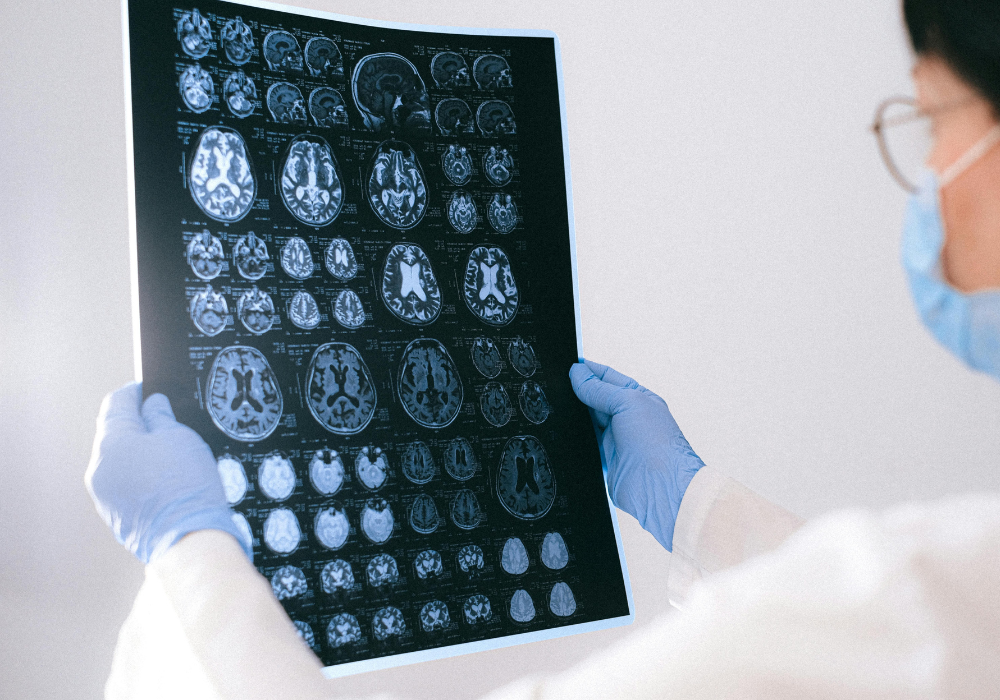New research raises eerie questions about where memories may truly exist.

What if memories aren’t locked inside your brain after all? Some researchers are beginning to explore the unsettling idea that experiences may be stored or echoed beyond the mind. Neuroscientist Dean Radin has suggested that memory could extend outside traditional brain activity, challenging how we think about consciousness itself. While the concept sounds more like science fiction than fact, early studies are raising questions that make even experts pause—and hint that our memories may not vanish quite the way we’ve always assumed.
1. The Radical Question Challenging Memory Science

For decades, scientists taught that memories exist only in the brain’s neural pathways. The hippocampus and cortex were seen as the ultimate storage vaults for every detail of our lives. This view shaped how we understood identity, learning, and even disease.
Now, a provocative idea is gaining attention: what if memories aren’t fully confined to the brain at all? If experiences could live beyond neurons, it would change how we think about consciousness itself. Researchers suggest this possibility could open a door into mysteries science has barely begun to touch.
2. How the Brain Traditionally Stores Experience

The standard model of memory is rooted in brain activity. When you learn or recall something, electrical signals fire between neurons, strengthening their connections. Over time, this process creates physical patterns in the brain that act like imprints of your past.
This explanation is well supported, but it leaves unanswered questions. Why do some memories vanish while others survive? And why do people sometimes recall things they were never exposed to? These gaps have led some scientists to question whether the brain is truly the only storage system at play.
3. Clues From People With Severe Brain Damage

Cases of brain injury raise intriguing possibilities about where memories reside. Some patients with damaged brain regions still recall events or knowledge doctors assumed should have been lost forever. Their resilience suggests memory may not always rely exclusively on neural tissue.
In rare instances, individuals missing large portions of brain matter function surprisingly well. These anomalies challenge long-held assumptions about memory’s location. If memory isn’t completely dependent on brain structure, then perhaps part of it extends into systems scientists don’t yet fully understand.
4. Phantom Limbs and Memory Beyond the Body

Amputees often report feeling sensations in missing limbs, a phenomenon known as phantom limb syndrome. While usually explained by brain rewiring, some researchers believe these experiences hint at memory stored beyond normal neural circuits.
These vivid perceptions seem tied to the body’s “memory” of itself, even when the body part is gone. The persistence of such sensations fuels questions about whether memory could exist in patterns outside the brain’s physical framework, echoing in ways that modern science struggles to fully explain.
5. Organ Transplants and Transferred Memories

There are recorded cases of transplant recipients reporting memories, tastes, or emotions linked to their donors. For instance, some people have developed new cravings or habits after heart or kidney transplants.
Skeptics argue coincidence plays a role, but the stories continue to surface. If even a fraction of them are valid, it raises the possibility that memory might be stored in other cells or tissues, not just the brain. This idea, while controversial, has encouraged more research into whether memory could be partly cellular.
6. The Role of Energy Fields in Memory

Some theorists suggest that memory could be stored in electromagnetic or quantum fields rather than solely in the brain. The body generates complex energy patterns, and some believe these could hold traces of experiences.
While mainstream science remains cautious, the idea of “field memory” is gaining quiet interest. If memories exist as energy patterns, it might explain why they sometimes seem to persist even after significant brain changes. Such theories remain speculative but provide a fascinating lens through which to question accepted science.
7. Ancient Traditions Hint at Shared Memory

Long before neuroscience, ancient cultures spoke of collective memories or shared consciousness. From myths about ancestral knowledge to spiritual teachings, many traditions suggested experiences might extend beyond individuals.
Today, some researchers revisit these ideas with a scientific eye. Could folklore about memory living outside the body reflect real phenomena? While modern evidence is still thin, the overlap between cultural wisdom and new theories suggests humanity has long suspected memory might not be limited to the brain alone.
8. Déjà Vu and the Mystery of False Memory

Almost everyone has experienced déjà vu, the eerie feeling of remembering something you never lived through. Scientists explain it as a brain glitch, but others argue it may hint at memory that exists beyond the self.
If déjà vu reflects a deeper memory system, it could suggest that the brain occasionally “tunes in” to patterns stored elsewhere. This unexplained familiarity remains one of the strongest everyday experiences people point to when imagining that memory may extend beyond the body.
9. Dreams as a Gateway Into Stored Experience

Dreams often combine fragments of memory with elements that feel entirely new. Some experts believe dreams demonstrate how memory interacts with forces outside conscious awareness.
When people dream of events they’ve never lived but feel strongly connected to, it suggests memory could exist beyond the brain. Researchers continue to explore whether dreams simply remix brain activity or if they tap into a larger field where information and memory may overlap in ways science cannot yet explain.
10. How Smell Suggests Memory Might Be Wider

The sense of smell is closely tied to memory, sometimes unlocking forgotten experiences instantly. But certain scents trigger powerful emotions or memories people cannot place.
This odd connection suggests that memory might not always originate in the brain’s wiring. If smell can unlock experiences beyond conscious recall, it may act as a bridge to deeper systems of memory. Some scientists believe these unexplained responses could be evidence that memory reaches beyond what neurons alone record.
11. Collective Memory in Families and Cultures

Families often pass down experiences through stories, but some research suggests memories may be carried biologically. Epigenetic studies show that trauma can influence future generations through subtle genetic changes.
This inheritance of memory-like responses blurs the line between individual and collective memory. If experiences can echo across generations, it raises the question of whether memory truly lives only in the brain—or whether it leaves imprints that ripple outward, affecting people long after the original event is gone.
12. The Science of Extended Mind Theories

Philosophers and cognitive scientists have developed “extended mind” theories, arguing that tools, environments, and even other people can become part of our memory system. Writing in notebooks or storing photos are everyday examples.
These ideas suggest memory may be distributed, not confined to the skull. If so, the brain could be only one part of a much larger network of storage. This reframes memory as something we participate in, not something locked away in neurons alone.
13. What the Future of Memory Research Could Reveal

If memories can extend beyond the brain, the implications are enormous. It could change how we approach disease, identity, and even questions of life after death.
Researchers are cautious, but interest is growing in exploring these possibilities. Future studies could reveal whether memory is purely neurological or something more expansive. Until then, the question lingers—what if the essence of who we are is not confined to the brain but reaches beyond, waiting to be understood?